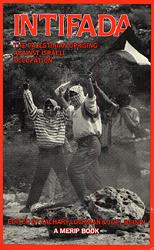Diplomats walk out as president of Iran calls Israel a racist state:
Diplomats have walked out of a speech by the Iranian president at a UN anti-racism conference after he described Israel as a “racist government”.
Two protesters, wearing coloured wigs, disrupted the beginning of the speech by President Mahmoud Ahmadinejad – followed by the Western walkout.
Others enthusiastically clapped as Mr Ahmadinejad continued his address.
France said it was a “hate speech”. A number of other Western countries have boycotted the conference altogether.
The walkout is a public relations disaster for the United Nations, which had hoped the conference would be a shining example of what the UN is supposed to do best – uniting to combat injustice in the world, says the BBC’s Imogen Foulkes in Geneva.
[…]
Mr Ahmadinejad, the only major leader to attend the conference, said Jewish migrants from Europe and the United States had been sent to the Middle East after World War II “in order to establish a racist government in the occupied Palestine”.
He continued, through an interpreter: “And in fact, in compensation for the dire consequences of racism in Europe, they helped bring to power the most cruel and repressive racist regime in Palestine.”
This walkout by western diplomats is embarassing at best, political correctness trumping truth as what’s being sold as a principled action is the equivalent of a child sticking their fingers in their ears and going “la la la can’t hear you”. What’s more, this is the second conference on racism in which the US and EU are throwing their weight around to defend Israel, the first being the conference in Durban back in 2001, where too much attention was paid to Israel as well. Several western countries, including my own, actually stayed away entirely this time because it “echoed the spirit of Durban” too much. It’s all incredibly cringeworthy, as it shows up how far our governments are willing to go to deny the truth about Israel.

